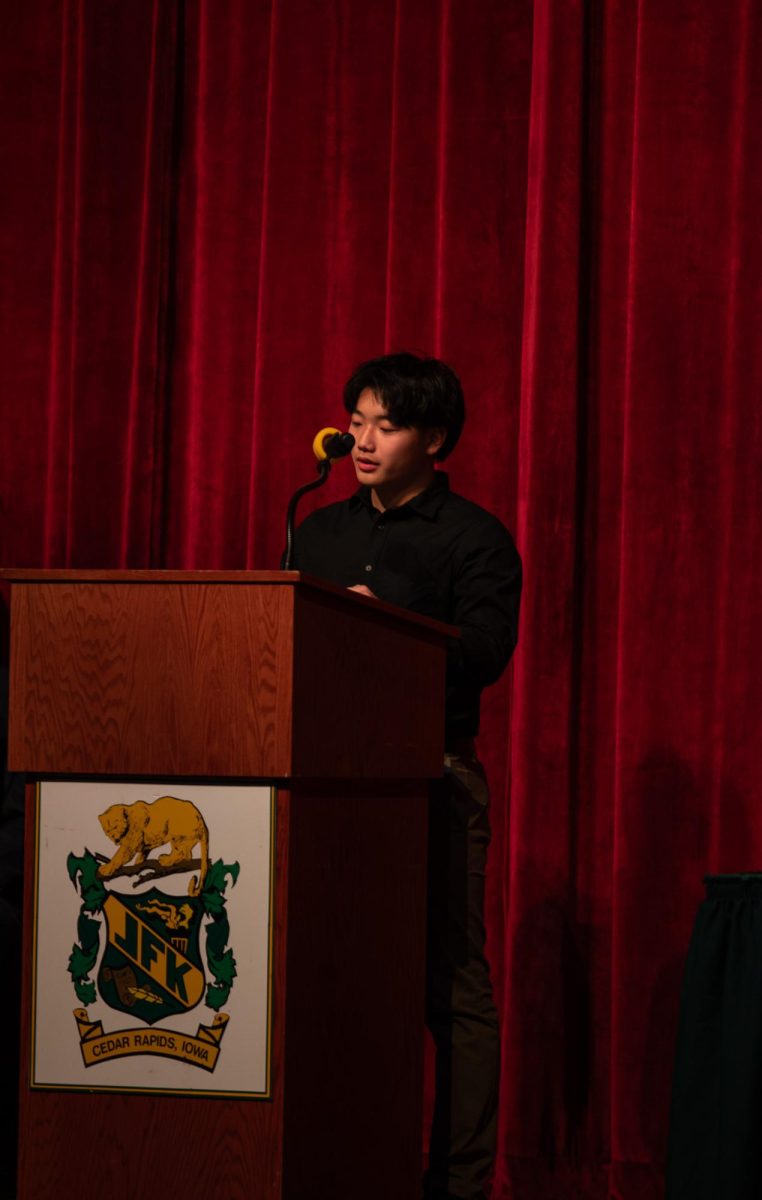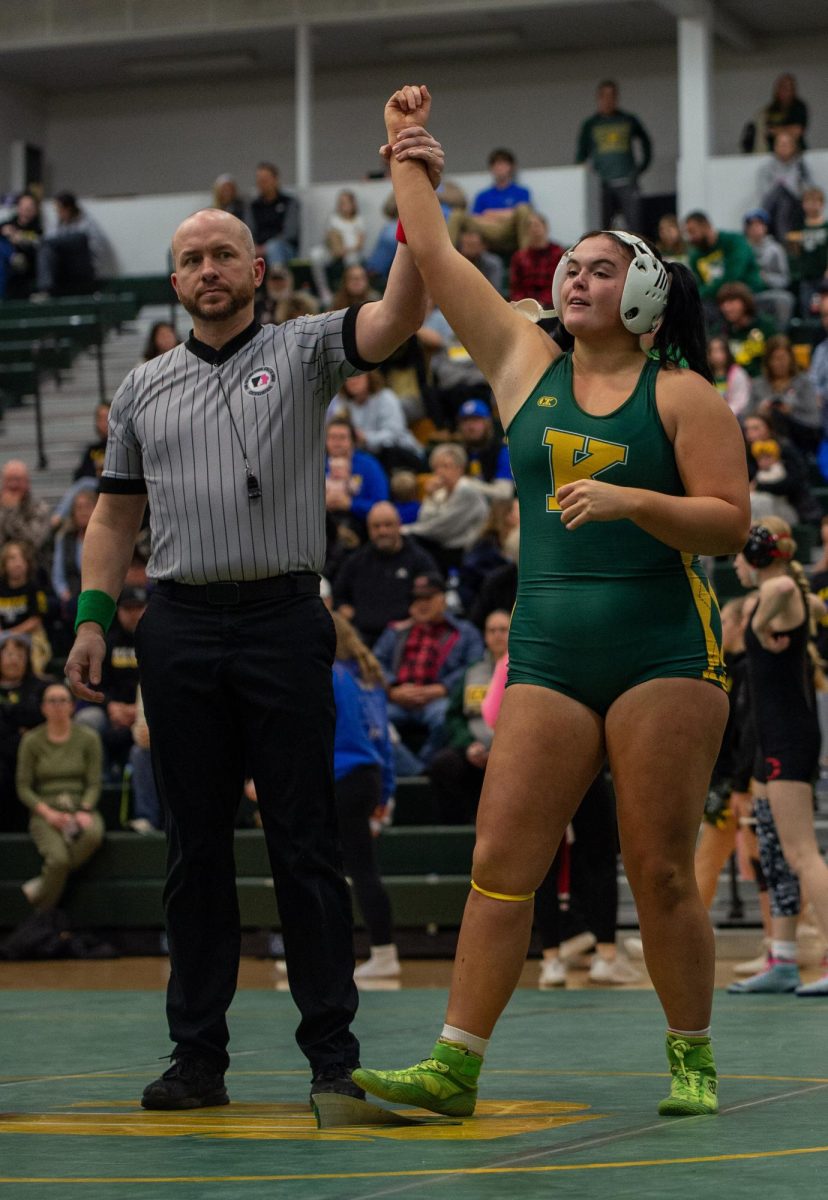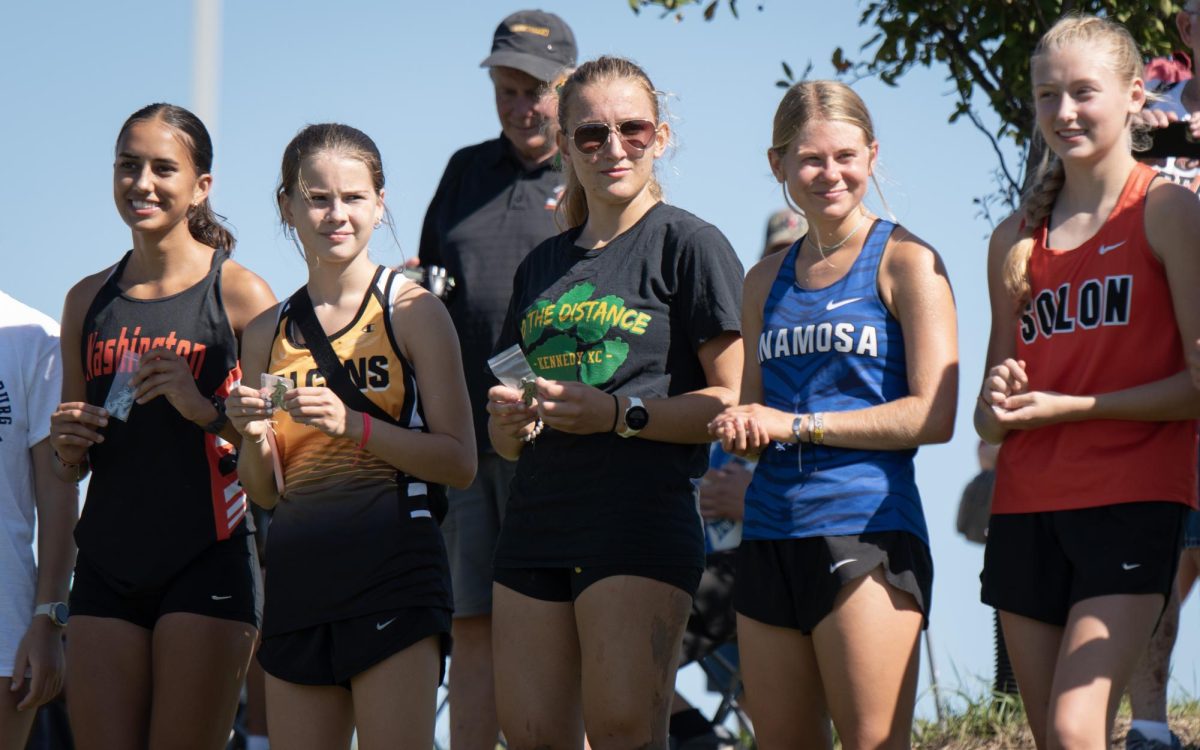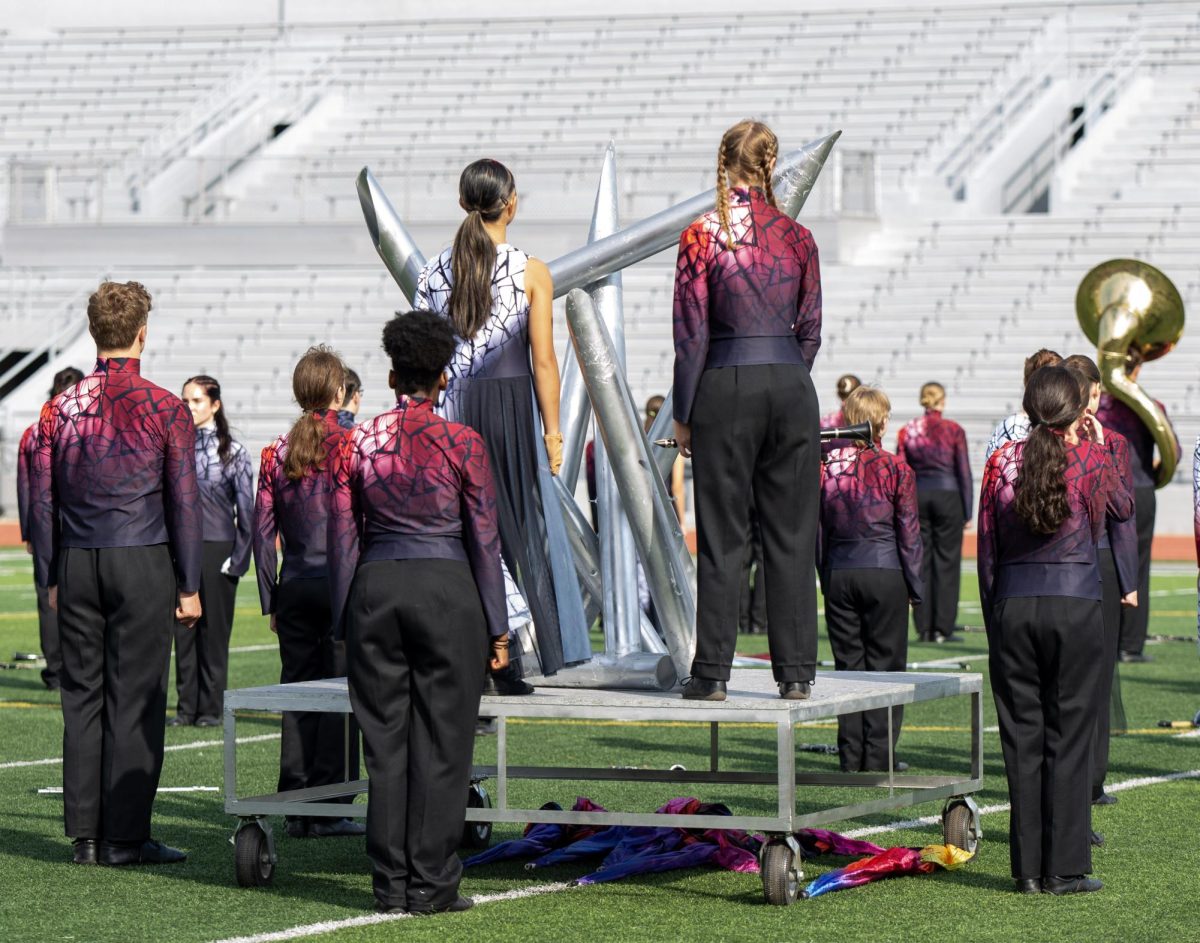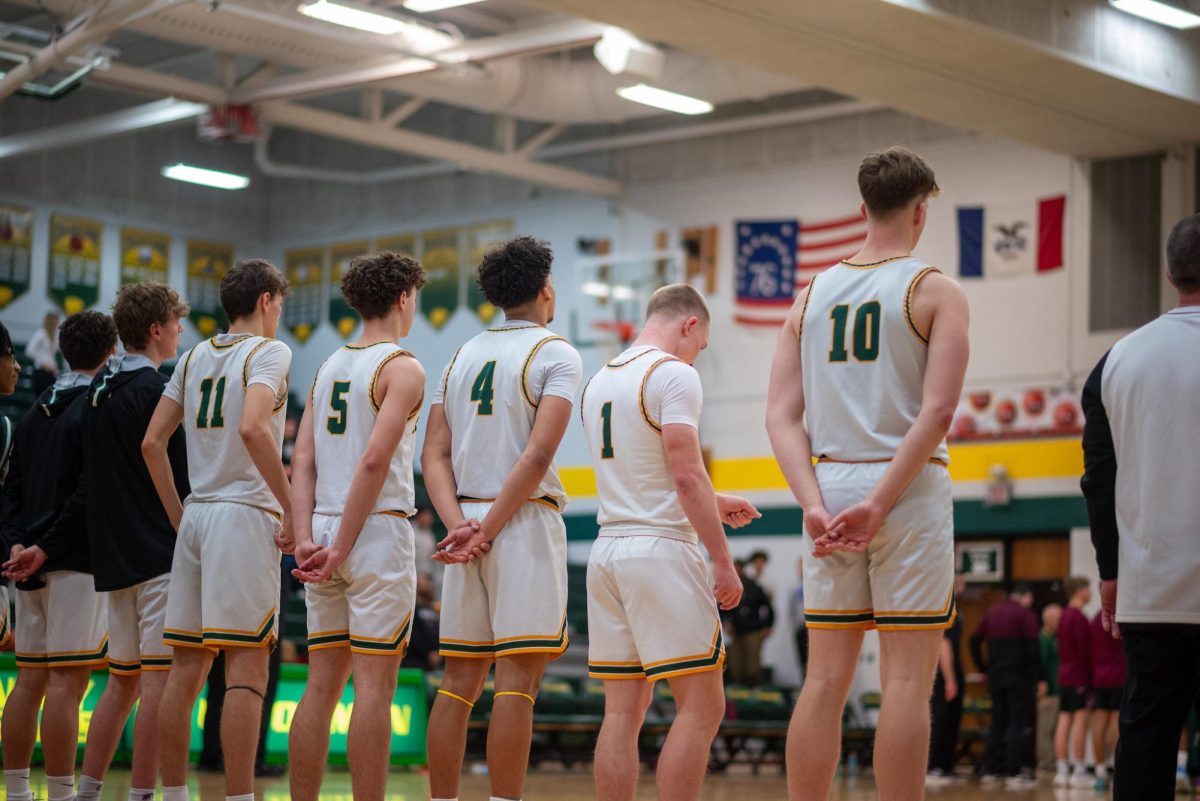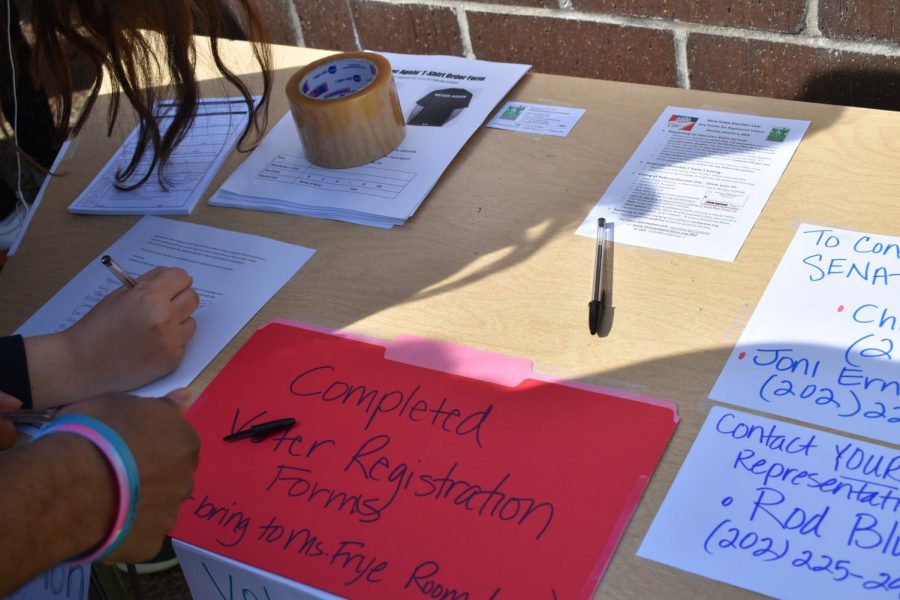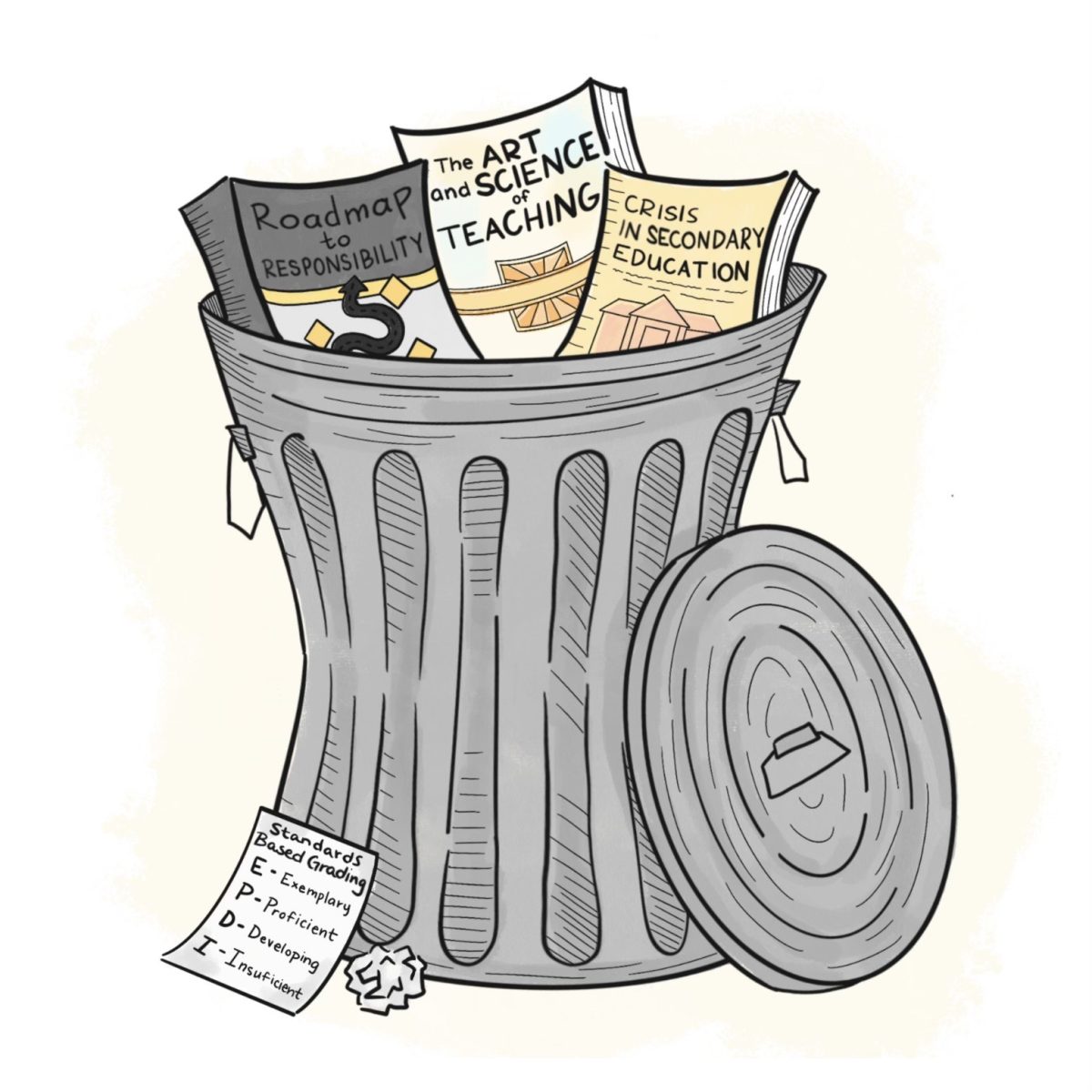At the start of October, Kennedy Principal Jason Kline aimed to register 90% of eligible students to vote, while also encouraging those who are 17 or turning 17 within the year to commit to registering.
Members of senior leadership were tasked to present to every classroom that had upperclassmen and encourage them to fill out the pledge cards and register to vote during class if eligible.
“The state has had the contest for a long time and I’ve always asked other people to do it and it never really materialized,” Kline said. “This year I decided that I was going to push it myself and really get students involved in the voting process.”
Voting is the foundation of our democracy. As citizens we are responsible for being informed and participating in voting at all levels, however, the drive fell short. While it did get students in the classroom to think about voting, it is unclear how many registered and will vote.
Modern-day students are hitting a roadblock—they know little to no information about voting and the voting process. Many of the students were unaware of their eligibility and didn’t know their SSN number or have their ID. Without those items, you cannot register to vote.
“When I would go into a classroom only a handful of students had their ID on them let alone know their SSN,” said senior counsel member Jacob Eliders. “Some students were even surprised to know that they were eligible to vote at all.”
Youth at KHS seem disinterested in the voting process and disregard the importance and privilege it is to vote in our democracy.
Not all fault falls on students. Kennedy’s administration should have approached this situation differently. The message was not clearly communicated as to who could register and who could only fill out the pledge cards. Students were feeling like they were being pressured to vote or putting their number/email down to only sign up for spam texts and emails about voting.
Upon entering a classroom as a senior leadership member myself, I often encountered teachers who were unaware that I was coming, causing them to stop instruction so I could proceed. Teachers being uninvolved was recognized by the students in their classroom, leading to a similar disinterest and disengagement reflected on the students in the classroom.
“Next year I would like to get more students involved,” said Kline. “I would also like to get really going on it a little early and find a way to systemize the process so we can optimize the amount of students registering and pledging in the classroom.”
This year, the main focus was the presidential election. What should have been emphasized more is the importance of being eligible to vote in local elections. Local elections not only happen more frequently but also heavily affect our day-to-day lives.
Voting is a right, a privilege and a responsibility. Students should feel empowered and emboldened to exercise their civic duty, not pressured or coerced.


